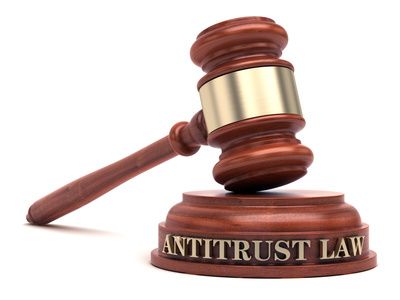This article is written by Ms. Anushi Agarwal and Anshal Dhiman. This is an exhaustive article that deals with the recent case wherein China penalised Alibaba Group under Antitrust Laws.
Table of Contents
Background
China started to undertake various tech giants under scrutiny last year and proposed updating the antimonopoly law with new provisions. In December 2020, China’s watchdog started investigating in order to find out if the country’s anti-monopoly laws have not been complied by Alibaba by preventing certain merchants from selling their goods on other shopping platforms. Eventually, Alibaba Group Holding Ltd. was fined by China for 18 billion yuan ($2.75 billion) when it was found that the company that is an e-commerce giant had abused its market position as being dominant in the field.
The fine imposed is nearly equivalent to 4% of the company’s revenue in 2019, indicating China’s antitrust law enforcement. Due to this, the Alibaba business empire has become a part of intense scrutiny and as a part of the penalty imposed Alibaba is required to submit a self-examination comprehensive report within the next three years. The fine imposed is being seen as a precedent that has been set up for the ruling Communist party to use the anti-monopoly rules to regulate such tech giants.
The founder of the company, Jack Ma, disappeared from the public eye and in fact, the company accepted the penalty via a statement release that also stated that the company would ensure its compliance with determination and now the company according to news reporters is likely to be much more cautious about doing anything that resembles strong-arming users or rivals.
Anti-Monopoly Law in China
History of Anti-Monopoly Laws in China
The first anti-monopoly law of China was enacted in 2008, which was a result of debating, formatting, and drafting for more than 10 years. The first drafting team was set up by the Legal Affairs Bureau to the State Council in 1987, which gave the first formal draft of the law in 1988. Over the years the National People’s Congress would put up the law for debate by enlisting it in the legislation plan in various sessions of the national legislation, before eventually passing (in 2007) and enforcing the anti-monopoly law in 2008. Before this, however, during the period of initial economic reforms in the country, China had adopted provisional rules on expediting economic alliance, which were the earliest forms of anti-monopoly laws in the country.
Features of the 2008 AML
The 2008 law, which was liberally based on western antitrust law models, was a big step for China as it attempted to come level to the modern world in terms of legal structure for antitrust and competition laws. The model of the law was administrative enforcement and not judicial enforcement. The law also provides for the establishment of the Anti-Monopoly Commission of the State Council (AMC) and Anti-Monopoly Enforcement Agency (AMEA). The AMC acts as a legislative body that can draft policies, form guidelines, and make reports regarding assessments of monopoly in the country. The AMEA on the other hand looks over enforcement of prices, cartel disbandment, and also looks over position abuse by a player in the market whether it be price based or non-price based. The AMEA acts as the agent of the Anti-Monopoly Bureau of the Ministry of Commerce (MOFCOM), which is also responsible for looking over corporate mergers in the country. Other than these two, there were a few more agencies too which operated at different levels performing different functions. The main functions of the Chinese AML were to:
– prohibiting agreements promoting monopoly
– prohibit behaviors classified as abuse of power
– institute a merger scheme
– prohibit abusive use of governmental power
New Anti-Monopoly rules of China
In February 2021, China’s market regulator SAMR released new Anti-Monopoly rules which are enforced to prevent monopolistic behavior, ensure healthy market competition, and promote healthy economic growth in the country. These rules put major focus on the online behavior of companies, with the internet being the main platform under the ambit of the rules, as previous law was not well equipped to deal with online violations of antitrust policy. It is similar to what India has done with Consumer Protection Act, 2019, which included in its ambit online transactions too along with the previous provisions laid in Consumer Protection Act, 1986. The rules intend to put a halt on data manipulation, algorithms, and price differentiation on the digital market to seduce customers.
These tactics were observed to have been used by tech giants of the country, against whom these restrictions are intended, tightening their moves even more. The new rules provide some duties to be followed by the agencies while supervising anti-monopoly tactics of companies. The rules are:
– Protect fair competition in the market
– Scientific and efficient supervision according to law
– Stimulate innovation and creativity
– Safeguard the legitimate interests of all parties
The new rules prohibit the use of ‘hub and spoke agreements’ along with the prohibition on monopoly agreements that were used to manipulate data algorithms and exchange data in the past. The rules give more power to the state (SAMR) to control and eliminate or restrict any unfair agreements or tactics that might affect market concentration.
Case Analysis
In November, China proposed sweeping antitrust regulations that target its economy. Later in December, Chinese regulators imposed a huge fine of 18 billion yuan on the Alibaba group that is a tech giant and the fine imposed had raised a number of questions relating to the future of the company as well as its founder Jack Ma.
The beginning was with the sharp comments from Mr. Ma criticizing the financial system of China when the State Administration for Market Regulation (SAMR) announced an antitrust probe weeks after a record $37 billion IPO from the Ant Group was suspended at the last minute.
SAMR levied such a huge fine on Alibaba Group when after undergoing proper investigation the tech giant was found indulging in a monopolistic act of abusing its market position and used market forces, platform rules, data, algorithms and other technical means to ensure the implementation of the exclusive dealing agreement. The group has been according to SAMR performing illegal activities that included prohibiting merchants from opening personal stores or participating in promotional activities on other competitive platforms. In fact to add up Alibaba Group’s requirement of “one out of two” that required users of the platform to not use rival merchant’s services had hurt interests of customers as the policy encourages anti-competition in service markets of China that involves online retail platforms, impedes the free flow of goods, services and resources and most importantly it infringes the legitimate rights and interests of merchants on the platform as well as affects the interests of the consumers.
The meagre sums of these penalties were symbolic at best compared to the benefits the tech firms reap from their market concentration. No companies have been told to break up their empires and users still have to hop between different super-apps that block each other off. In recent weeks, however, there are signs that China’s antitrust authorities are getting more serious.
Similar Incidents
Alibaba is not the only company to have been fined by the Chinese market regulator over irregular market activities. On 12 March 2021, SAMR revealed that they had fined over 12 Chinese companies under the new guidelines, hardly a month after the new rules were enforced. On the receiving end of the fines were some of the biggest companies of the country, proven guilty of business malpractices on the internet. Tencent, famous for developing PUBGMobile, was amongst the giants fined. The tech giants were punished for their investment in YuanFudao, which wasn’t disclosed to the regulator. While Tencent modestly accepted the fine and promised to adapt to the new rules, not all the companies were so compliant. Baidu, Didi Mobility, and Softbank, who were fined for not seeking appropriate approvals before entering joint ventures, remained silent on the issue, unlike Tencent.
ByteDance firm, the owner of the famous app TikTok was fined for privacy issues. The firm was also fined for its joint venture with the Shanghai Dongfang newspaper. A few other e-commerce firms and investment companies were fined for anti-competitive practices. Qualcomm, one of the world’s biggest mobile chip suppliers, was fined by the Chinese government in 2015 for their anti-competitive practises. Furthermore, in 2020, a fine of 7.65 million Yuan was imposed on 19 companies in Maoming City for entering into a horizontal monopoly agreement. Concrete suppliers have been victims to such anti-monopoly fines quite a few times over the recent years, because of their involvement in horizontal monopoly agreements. The Chinese authorities have been somewhat successful in stopping cartel formation in the country.
The fine on AliBaba was just as precautionary to other big tech companies as it was to the Jack Ma led business. Apart from China, countries in Europe, and the US has also been conducting strict reviews of big tech giants (eg. Facebook, Alphabet etc.) so as to make sure they don’t abuse their power.
Conclusion
China does not have a rich history when it comes to anti-monopoly/antitrust laws. The present working law along with the new rules issued by the government is a step forward towards the country’s fight against monopoly. The fines issued to the tech giants, even though not much of their annual turnover, serves a great purpose and a lesson which shows the intention of the government as far as a monopoly in the market is concerned.
In a nutshell, according to China’s investigation report, Alibaba’s business practices made competition limited, caused violation of rights of merchants by allegedly not allowing its merchants to use other platforms to make sales, harmed the interests of consumers and so infringed antitrust laws of China. As per the Antitrust consultant committee member of the State council, Shi Jianzhong, the fine imposed on the tech giant Alibaba is a milestone and a road sign for other business giants as well.
References
- https://techcrunch.com/2020/12/13/china-literature-alibaba-fined/
- https://www.wsj.com/articles/alibaba-hit-with-record-2-8-billion-antitrust-fine-by-chinas-market-regulator-11618018830
- https://www.ciim.in/alibaba-marketing-strategy-case-study/
- https://scroll.in/article/992611/record-antitrust-fine-against-alibaba-shows-big-techs-dream-run-in-china-is-over
- http://gkml.samr.gov.cn/nsjg/fldj/202102/t20210207_325967.html
- https://www.wipo.int/edocs/lexdocs/laws/en/cn/cn099en.pdf
- https://chicagounbound.uchicago.edu/cgi/viewcontent.cgi?article=1086&context=international_immersion_program_papers
- https://www.iflr.com/article/b1r3bt1z7g1771/primer-chinas-new-anti-monopoly-rules-for-tech-companies
LawSikho has created a telegram group for exchanging legal knowledge, referrals and various opportunities. You can click on this link and join:
 Serato DJ Crack 2025Serato DJ PRO Crack
Serato DJ Crack 2025Serato DJ PRO Crack











 Allow notifications
Allow notifications


